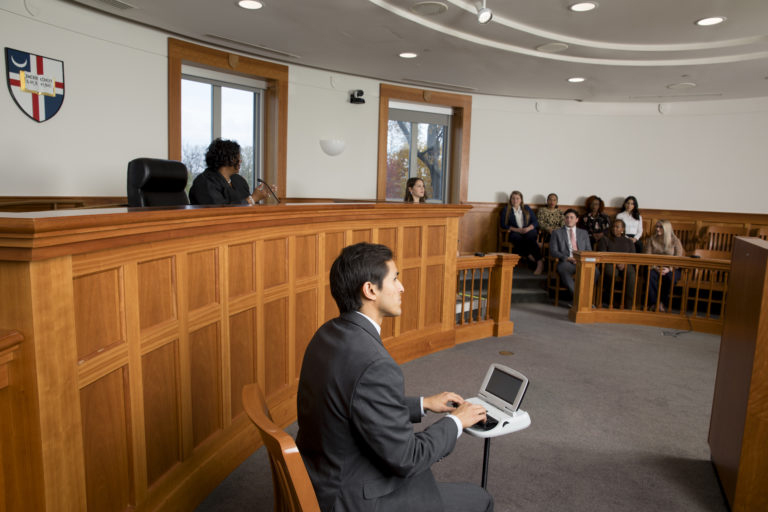How expert court reporting Helps Prevent Errors in the Courtroom
How expert court reporting Helps Prevent Errors in the Courtroom
Blog Article

The Future of Court Coverage: Developments and Fads Shaping the Market
As you explore the future of court reporting, you'll see a shift driven by modern technology and innovation. Real-time transcription and AI applications are improving how legal process are documented. With remote depositions gaining traction, the landscape is evolving swiftly. It raises inquiries about the role of stenotype reporter and the abilities they'll need moving onward. What does this mean for professionals in the field? The solution might amaze you.
The Influence of Expert System on Court Reporting
As expert system continues to develop, it's improving the landscape of court coverage in methods you may not anticipate. You might discover that AI tools are simplifying tasks typically managed by human reporters, permitting for greater efficiency. AI can assess large amounts of lawful message, assisting you determine relevant precedents and improve situation preparation. You'll additionally discover AI-driven applications assisting in file monitoring, making it less complicated for you to organize and recover crucial information quickly.
Furthermore, AI can enhance the preparation procedure by providing anticipating analytics, which can help you prepare for trial results based upon historical information. This isn't simply regarding changing jobs; it has to do with augmenting your capacities. With AI dealing with regular jobs, you can focus a lot more on your core responsibilities, such as making sure precision and offering critical legal understandings. Embracing these changes can place you as a forward-thinking professional in a changing sector.
Real-Time Transcription: Enhancing Accuracy and Effectiveness
Real-time transcription has changed the court reporting procedure, making it easier than ever for you to catch exact documents instantly. With advanced innovation, you can currently give immediate transcripts throughout hearings or depositions, making certain that all parties have access to crucial details without delay. This immediacy not only improves the overall effectiveness of the legal procedure however likewise enables you to concentrate on the dialogue, as opposed to clambering to catch up.
As you make use of real-time transcription, you'll notice a considerable reduction at fault, thanks to automated checking tools that flag variances as you kind. In addition, customers appreciate the ability to assess records immediately, allowing quicker decision-making and smoother procedures. By accepting this development, you're not simply boosting your operations; you're establishing a brand-new requirement in court reporting that focuses on precision and performance. This forward-thinking approach positions you at the forefront of the evolving legal landscape (court reporting).
The Increase of Remote Depositions

With the growing demand for adaptability in lawful proceedings, remote depositions have arised as a game-changer in court coverage. You can currently join depositions from anywhere, getting rid of traveling time and costs. This benefit permits you to concentrate on what absolutely matters-- preparing your case.
Remote depositions utilize advanced innovation, allowing real-time communication and record sharing. You can engage with witnesses and attorneys effortlessly, making particular that every person remains linked despite their physical area. This strategy not just conserves time yet additionally increases your swimming pool of professional witnesses, as geographical barriers end up being less of an issue.
As remote depositions gain popularity, it's essential to adapt to this new norm. Familiarize on your own with the essential tools and procedures to guarantee a smooth experience - court reporting. Embracing this innovation can offer you an one-upmanship, allowing you to navigate the ever-evolving landscape of lawful process successfully
Digital Courtrooms: Transforming the Lawful Landscape
As you step right into the globe of digital court rooms, you'll discover just how virtual hearing modern technology is reshaping lawful procedures. This change not only makes accessibility simpler yet likewise enhances transcription accuracy, ensuring every word is recorded correctly. Accepting these advancements can substantially improve the effectiveness of the legal process.
Digital Hearing Technology
While the typical court room setup has long been a sign of justice, the rise of virtual hearing technology is improving just how lawful procedures are conducted. In enhancement, digital hearings can improve involvement, allowing witnesses and experts to give testament without the restrictions of location. As you adapt to these adjustments, you'll observe that online hearings maintain the honesty of the lawful process while welcoming technology, eventually transforming the means justice is offered in the modern globe.
Boosted Transcription Accuracy
Improved transcription precision is changing the lawful area, making court process more trustworthy than ever before. As an outcome, vital information aren't shed in translation, ensuring that the integrity of the legal process is maintained. Embracing these technologies means you're stepping into a future where clarity and accuracy in lawful documents are extremely important, inevitably profiting all celebrations included in the judicial system.
The Function of Court Reporters in Virtual Hearings
Stenotype reporter play a vital function in virtual hearings, guaranteeing that every word spoken is accurately captured and recorded in real-time. As a stenotype reporter, you promote interaction in between celebrations, making complicated lawful proceedings easily accessible. Your expertise in legal terminology and the capability to rapidly adapt to various audio speakers are vital in this digital environment.
Throughout online hearings, you maintain a steady focus, even among technical obstacles or disturbances. You supply a clear, written record that can be referenced later on, helping her latest blog courts, attorneys, and customers comprehend the process. Your abilities in steering various platforms assure that you can perfectly incorporate into any kind of online arrangement.
Additionally, you also assist copyright the stability of the judicial procedure, verifying that every individual's voice is heard. By doing this, you not just boost the effectiveness of lawful proceedings however also contribute to the total fairness and openness of the justice system.
Innovations in Paperwork and Record Maintaining
As technology progresses, technologies in documentation and document maintaining are transforming exactly how court press reporters capture and handle lawful records. You'll find that digital devices allow for quicker and much more exact transcription, reducing the chances of human error. Cloud-based storage space remedies allow you to securely keep and accessibility documents from anywhere, making collaboration with legal teams seamless.
Expert system is additionally playing a significant role, assisting with real-time transcription and even using clever editing features. These developments not just boost efficiency but also guarantee that you can offer high-grade documentation in a fast-paced legal environment.
Moreover, the integration of voice recognition software application improves the process, allowing you to focus more on the subtleties of the proceedings instead of simply inputting. By welcoming these technologies, you're placed to raise your abilities and satisfy the demands of modern-day court reporting properly.
Future Abilities and Training for Court Reporters
While innovation reshapes the landscape of lawful process, it's essential for court press reporters to adjust by obtaining new abilities and training. You'll need to acquaint on your own with advanced transcription software and electronic coverage tools to remain affordable. Accepting expert system and real-time captioning will enhance your performance and accuracy.
Furthermore, developing solid study and logical skills is crucial. You'll commonly experience complex lawful jargon and treatments, so understanding legal principles will hone your reporting. Online training courses and workshops can supply useful understandings into these locations.
Connecting with various other specialists will also assist you remain updated on market trends. Signing up with companies or participating in conferences can subject you to new continue reading this innovations and finest practices.
Ultimately, honing your interpersonal skills will certainly boost communication with lawyers and customers. By concentrating on these areas, you'll position yourself for success in the evolving area of court coverage.
Often Asked Concerns

What Credentials Are Required to Come To Be a Court Reporter Today?
To become a stenotype reporter today, you'll need a secondary school diploma, specialized training in court coverage, and qualification, often via a national exam. Solid keying skills and attention to detail are essential for success.
How Can Court Reporters Keep Updated With New Technologies?
To remain updated with brand-new modern technologies, you must go to workshops, join specialist companies, and sign up for relevant magazines. Networking with peers and joining on-line discussion forums can also maintain you notified about the current improvements.
What Is the Typical Wage for Court Reporters Currently?
The typical salary for court press reporters varies by area and experience, however you can anticipate around $50,000 to $70,000 every year. In some areas, experienced press reporters can earn much more, specifically with specialized skills.
Exist Task Opportunities for Court Reporters in Non-Legal Area?
Yes, there are task possibilities for stenotype reporter in non-legal areas. You can discover duties in closed captioning, transcription solutions, and media, where your skills in recording spoken language are browse around this site extremely valued and demanded.
Exactly How Does Court Coverage Differ in Different Nations?
Court reporting differs significantly throughout countries. You'll locate differences in terms, modern technology, and lawful systems. For instance, some countries emphasize digital coverage, while others still count on conventional stenography approaches for capturing spoken words.
Report this page